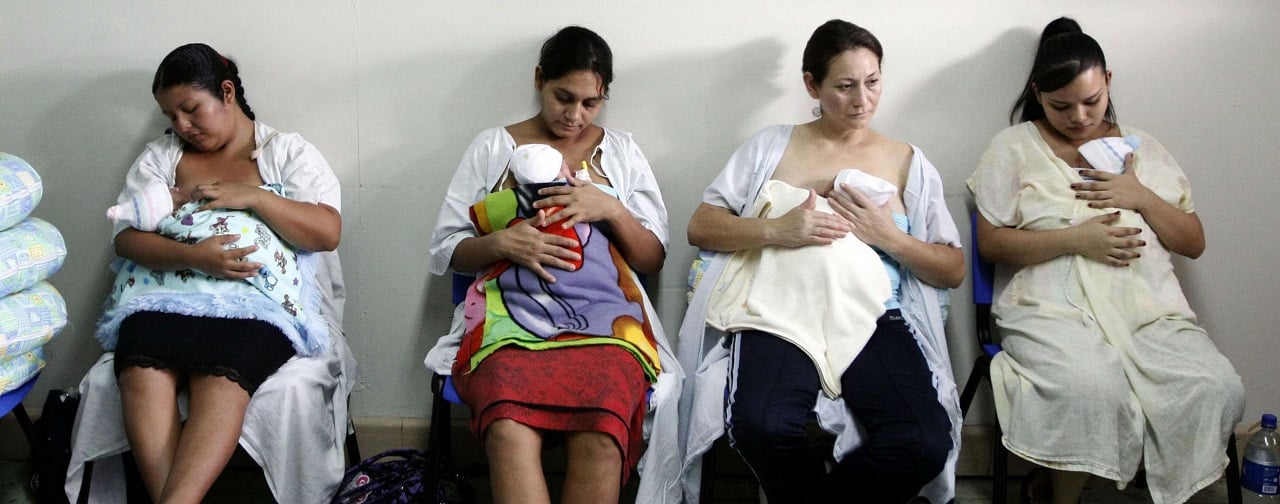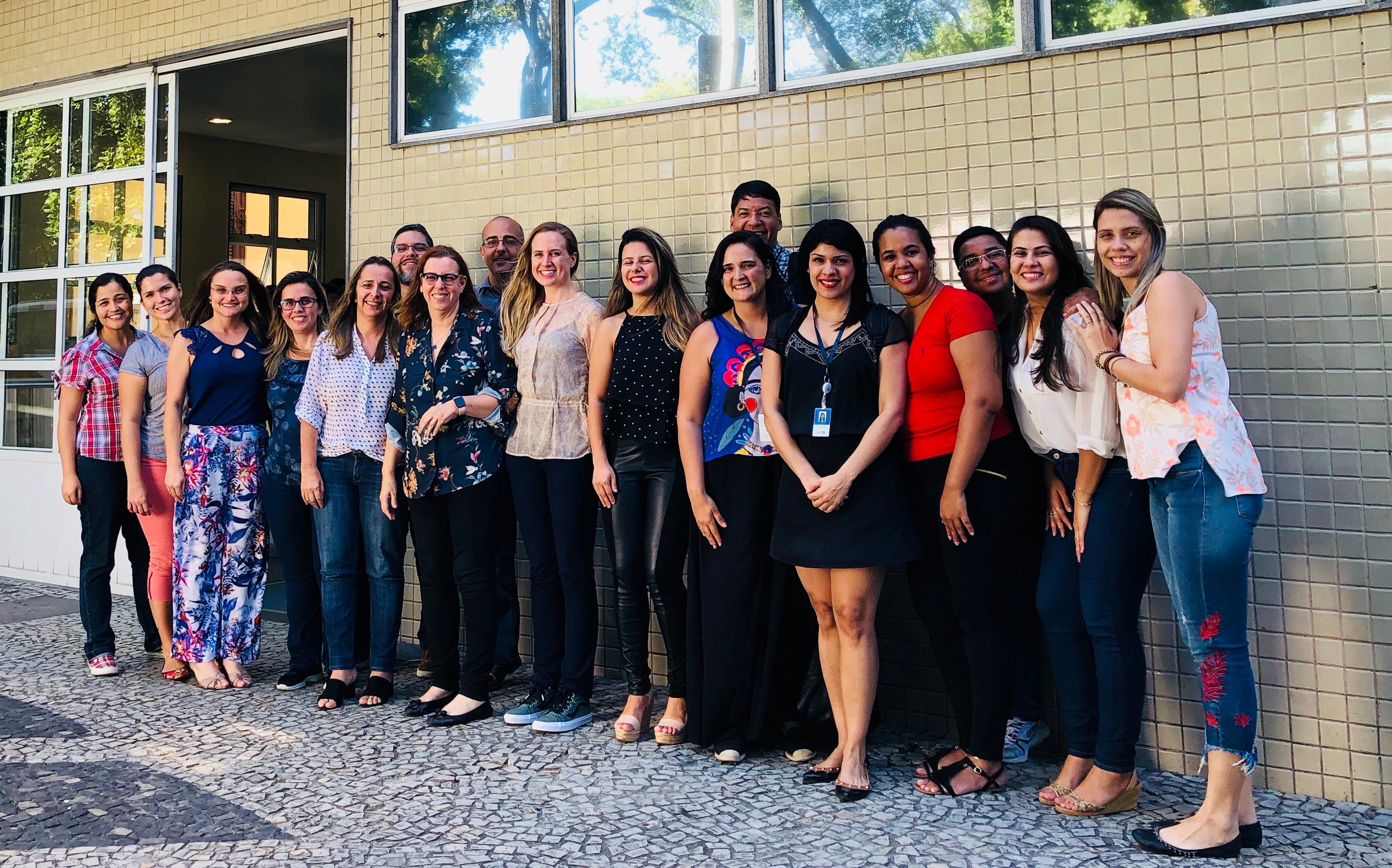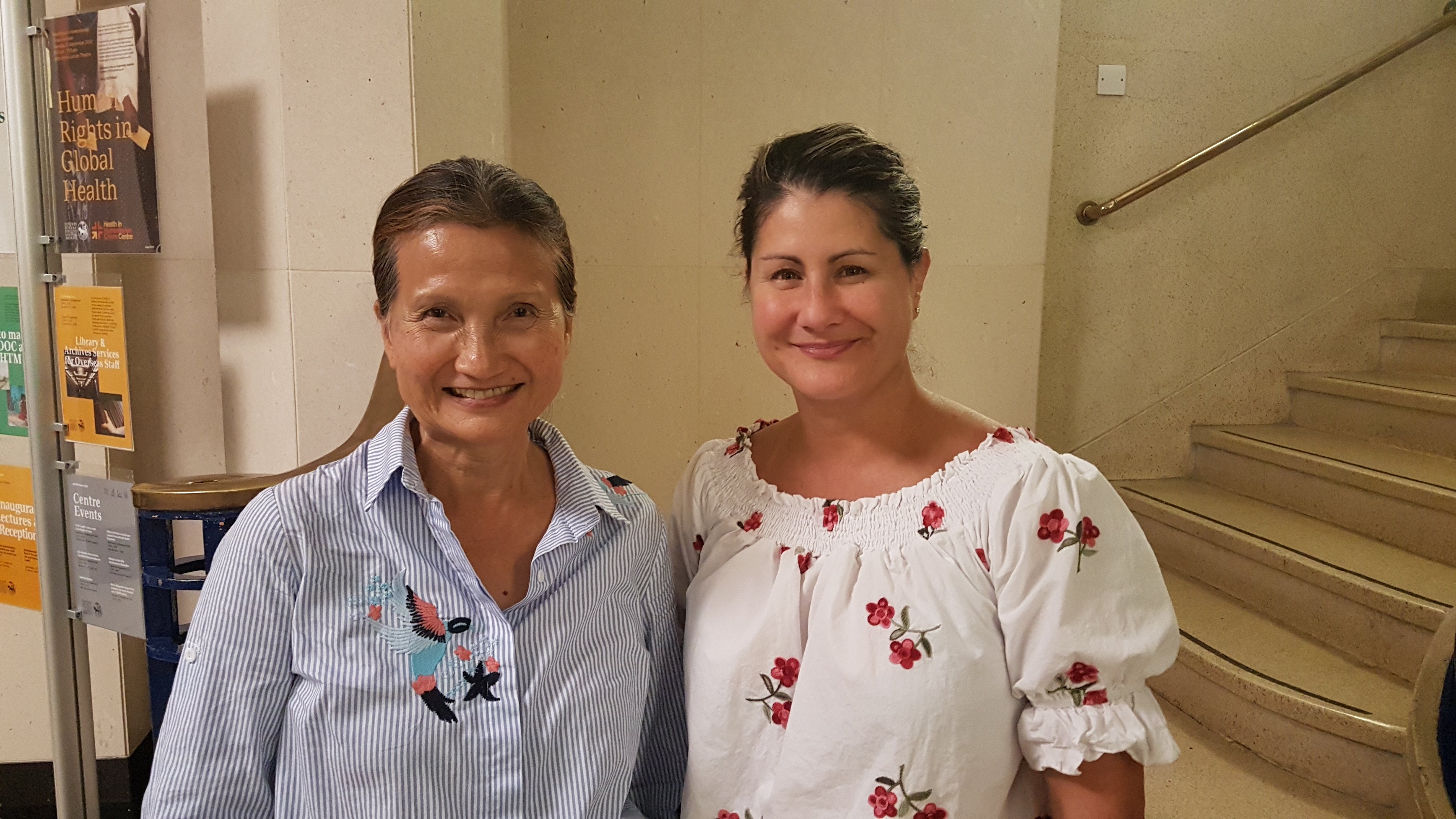Bringing together the expertise of 25 leading research and public health organisations from Latin America, North America, Africa, Asia, and Europe, ZikaPLAN sets out to address the knowledge gaps in Zika and build a rapid research response to emerging infectious disease outbreaks.
How much do you know about Zika?
Hope After Zika
Watch our short film, where we follow a family affected by congenital Zika syndrome and gain an insight on the support networks made available to them.
Bringing together the expertise of 25 leading research and public health organisations from Latin America, North America, Africa, Asia, and Europe, ZikaPLAN sets out to address the knowledge gaps in Zika and build a rapid research response to emerging infectious disease outbreaks. The London School of Hygiene and Tropical Medicine is a major contributor to ZikaPLAN and is responsible for leading research on Congenital Zika Syndrome (CZS) and neurological complications; developing a platform for diagnosis innovation and evaluation; investigating vaccines in antibody-dependent enhancements (ADE); establishing mathematical models to inform public health policies; and developing wearable protective technologies against mosquitoes.
- MERG: Unravelling Congenital Zika Syndrome
-
The objective of this working group is to determine the attack rate and full clinical spectrum of Congenital Zika Syndrome (CZS) by building on the work of the Microcephaly Epidemic Research Group (MERG).
The main research areas of MERG: Unravelling Congenital Zika Syndrome:
- Congenital Zika Syndrome (CZS) implications for pregnant women aims to determine the risk of miscarriage, still birth, microcephaly and other manifestations in neonates of pregnant women with Zika Virus by gestational age. The full spectrum of CZS at birth will be defined and an improved case definition of CZS for surveillance purposes and birth defect registries will be developed.
- Congenital Zika Syndrome (CZS) implications for neonates will characterise the clinical spectrum of CZS for neonates and validate simple tools for assessing deficiencies in other low resourcing-setting.
- Social and economic impact of Congenital Zika Syndrome (CZS) will estimate the social impact and economic cost of having a child with CZS on the women’s and the family’s life and impact of public services.
Participating Organisations
Group leader: Prof. Laura Rodrigues, London School of Hygiene & Tropical Medicine
- Umeå University
- Queen Mary University of London
- Ulster University Associação Técnica–Científica de Estudo Colaborativo Latino Americano de Malformações Congênitas
- Fundação Oswaldo Fiocruz
- Universidade de Pernambuco
- Platform for Diagnostics Innovation and Evaluation
-
This working group aims to develop and validate tools for the diagnosis, surveillance and research on Zika virus (ZIKV). By setting up a biobank of specimens and a network of laboratory and clinical sites, pre-approved for clinical trial protocols, novel ZIKV diagnostic tests in accordance with WHO Target Product Profiles and epidemiologic research will be established and the validation of their performance and operational characteristics of diagnostic tests accelerated. The group also sets out to develop a Point of Care Test(POST) for NS1/IgM for Zika, establish and disseminate a Manual and Standard Operating Procedures on sample collection, and characterization and conduct landscape analyses of Zika diagnostic assays that are in development or commercially available.
Participating Organisations
Group leader: Prof. Rosanna Peeling, London School of Hygiene and Tropical Medicine
- Fundación Universidad del Norte
- Fondation Mérieux
- The University of North Carolina at Chapel Hill
- Institute of Tropical Medicine in Antwerp
- Instituto Medicina Tropical Pedro Kouri
- Institut Pasteur de Dakar
- International Vaccine Institute
- INVADE: Investigating Vaccines in Antibody Dependant Enhancement
-
The working group will identify the major T-cell epitopes and cross reactive B-cell epitopes on Zika virus (ZIKV) and assess the role of flavivirus antibodies in protective and pathogenic immunity following ZIKV through antibody dependant enhancements (ADE). The group is determined to find out whether a pre-existing immunity to other co-circulating flaviviruses or flavivirus vaccines is playing a protective or detrimental role in ZIKV immunity. Over 2000 T cell epitopes and epitopes targeted by type-specific and neutralising antibodies will be identified providing critical information for the development of vaccines, serological diagnostic assays. This will additionally aid in understanding potential mechanisms of immune pathogenesis reasonable for severe neurological and foetal defects.
Participating Organisations
Group leader: Prof. Andrew Falconar, Fundación Universidad del Norte
- London School of Hygiene & Tropical Medicine
- La Jolla Institute for Allergy and Immunology
- The University of North Carolina at Chapel Hill
- Mathematical modelling to inform public health policies
-
This working group is developing mathematical models which will inform public health policies on how best to mitigate the Zika outbreak in Latin America (based on the MERG: Unravelling Congenital Zika Syndrome working group findings). The mathematical model set out to be achieved by the group on transmission dynamics will additionally anticipate and prepare for the impact of Zika on health care systems in the region. The study will model various aspects of the Zika epidemic, including Disability-Adjusted Life Year (DALY) of Congenital Zika Syndrome (CZS); the extent of neurological complications and their impact on health care utilisation; the role of non-vector transmission in Zika virus dynamics; vector parameters based on viral fitness; vector control strategies, such as using Wolbachia-infected and genetically modified mosquitos; optimal control bundles to mitigate future outbreaks, in particular in Latin American cities; and the burden of disease by age group and location to inform vaccine developers. These results will be translated into policy-beliefs and health policy recommendations.
Participating Organisations
Group leader: Prof. Eduardo Massad, Universidade de São Paulo
- Umeå University
- London School of Hygiene & Tropical Medicine
- University of Oxford
- WEAR: Wearable Aedes Repellent Technologies
-
This working group will produce novel wash-in detergent formulations and long-lasting plastic technologies containing repellents for the treatment of clothing and other wearable repellent technologies for the protection of pregnant women against Aedes mosquito bites. New wash resistant technologies will be investigated, including silica-shell, polymer fibres and microencapsulated formulations to determine whether repellent active ingredients can be retained in fabrics for multiple washes. This working group will also include focus group studies in Colombia and modelling study to determine what level of protection is required to reduce Zika transmission in pregnant women.
Participating Organisation
Group leader: Professor James Logan, London School of Hygiene & Tropical Medicine
Research on the current Zika virus outbreak is moving fast. To keep up-to-date with the latest on Congenital Zika Syndrome (CZS) and how its escalation is affecting families, local healthcare structures and public health policies, vaccines in antibody dependant enhancement, and innovative personal protective technologies against mosquitoes, please read through our most recent resources and publications.
14:00 - 16:00
The Zika epidemic triggered international panic in 2015 with the birth of thousands of babies with microcephaly. Three years on, there are few new cases and little international attention. Yet, there are more than 3,000 confirmed cases of Congenital Zika Syndrome in Brazil, and many more suspected.
Duncan Catterall Seminar Room, Mortimer Market Centre, Capper Street, London, WC1E 6JD, 8.00am
Seminar to be presented by David Hamer, Professor of Global Health and Medicine at the Boston University School of Public Health and School of Medicine
ISNTD Bites is the annual conference by the International Society for Neglected Tropical Diseases for vector control professionals and specialists in vector-borne diseases to learn, network and innovate tangible business or policy collaborations.
John Kinsman, member of the ZikaPLAN Messaging project and Associate Professor in Global Health at the Epidemiology and Global Health Unit, Umeå University gave a presentation on the “Perceptions of and reactions to Zika messages in Brazil” on day two of the conference, Zika Virus and other Mosquito-borne Viruses, Science for Preparedness and Response in the Mediterranean Region, which was held in Barcelona, May 23-24.
The aim of this event, jointly organized by B·Debate and the Barcelona Institute for Global Health (ISGlobal), was to generate a forum for an interdisciplinary and international debate bringing together experts from different backgrounds to discuss the critical issues related to public health, epidemiology, entomology, virology, clinical care and diagnostics.
The objectives of the meeting included a review of current interdisciplinary knowledge and activities on mosquito-borne viral diseases research relevant to public health management with special focus on the ongoing Zika epidemic; a review of regional capacities and needs for preparedness and response against mosquito-borne viruses which can be supported by research in the Mediterranean Region; the identification of priority objectives, research activities as well as optimal channels of communication for supporting public health bodies against mosquito-borne viral diseases and the identification of existing networks and platforms which can be used or adapted as a model for research collaboration and translation from research programs to public health management.
As part of THINK BRAZIL event, organised by the scientific branches of the British Embassy in Brazil and the Brazilian embassy in Britain, the LSHTM will hold the event: below, with Celine Turchi, named one of the 10 most important scientists of 2016, and scientists funded by ZikaPLAN.
Kathleen O’Reilly
Kathleen O’Reilly is an epidemiologist working in collaboration with Laith Yakob and Oliver Brady through the ZikaPLAN and ZIKAlliance consortia. Whilst the project is being implemented here at LSHTM, partners are involved from across Europe, and the Americas. As part of the project Kathleen is using mathematical modelling to gain deeper insight to the potential threat of a future Zika Virus outbreak in Latin America. Comprising the use of continental-scale data on the Zika epidemic with demographic and environmental data thought to influence mosquito populations and infection risk, an analysis of the predicted future trajectory has now been finalised. Research is still underway; Kathleen and her team are optimistic that they will discover different control strategies with a strong focus on how Zika has spread across specific countries. These insights will be extremely useful and especially relevant for partners within affected communities, particularly around the control of the mosquito that spreads Zika - Aedes aegypti - which more broadly will apply to other vector-borne diseases such as dengue and chikungunya.
Elizabeth Brickley
Dr Elizabeth Brickley is an infectious disease epidemiologist and the leader of the ‘Unravelling Congenital Zika Syndrome’ Work Package for ZikaPLAN at the London School of Hygiene and Tropical Medicine. Elizabeth collaborates with valued partners at the Instituto Fernandes Figueira in Rio de Janeiro, the Instituto de Patologia Tropical e Saúde Pública in Goiânia, and the Microcephaly Epidemic Research Group in Recife to follow-up three pregnancy and birth cohorts in Zika-affected communities in Brazil. The teams are working to shed light on the vertical transmission of Zika virus in pregnancy and to describe the spectrum of Congenital Zika Syndrome in children.
Rosanna Peeling and Debi Boeras
Professor Rosanna Peeling leads Work Package 5; Platform for Diagnostics Innovation and Evaluation. Working alongside her, is Dr Debi Boeras who is a Consultant for the International Diagnostics Centre at the London School of Hygiene and Tropical Medicine. Their research has a broad scope, and is currently being implemented in Latin America, Europe, USA, and Africa. With the overall objective to develop, validate and evaluate tools for the diagnosis, surveillance and research on ZIKV, the pair have built a large team of staff and partners who are continually developing Zika diagnostic assays. Working in collaboration with UNICEF, they have successfully established a bio banking network for the first series of evaluations of new Zika diagnostics and subsequently have now set up a bio bank facilitating test development, evaluation and research studies. Professor Peeling and Dr Debi Boeras are keen to continue maintaining the ZikaPLAN bio bank, working with their evaluation sites to help accelerate market entry of new and improved Zika diagnostic assays. The team are dedicated to ensuring they have established a sustainable network of sites that work to provide access to Zika specimens, evaluate data and are sharing data.



